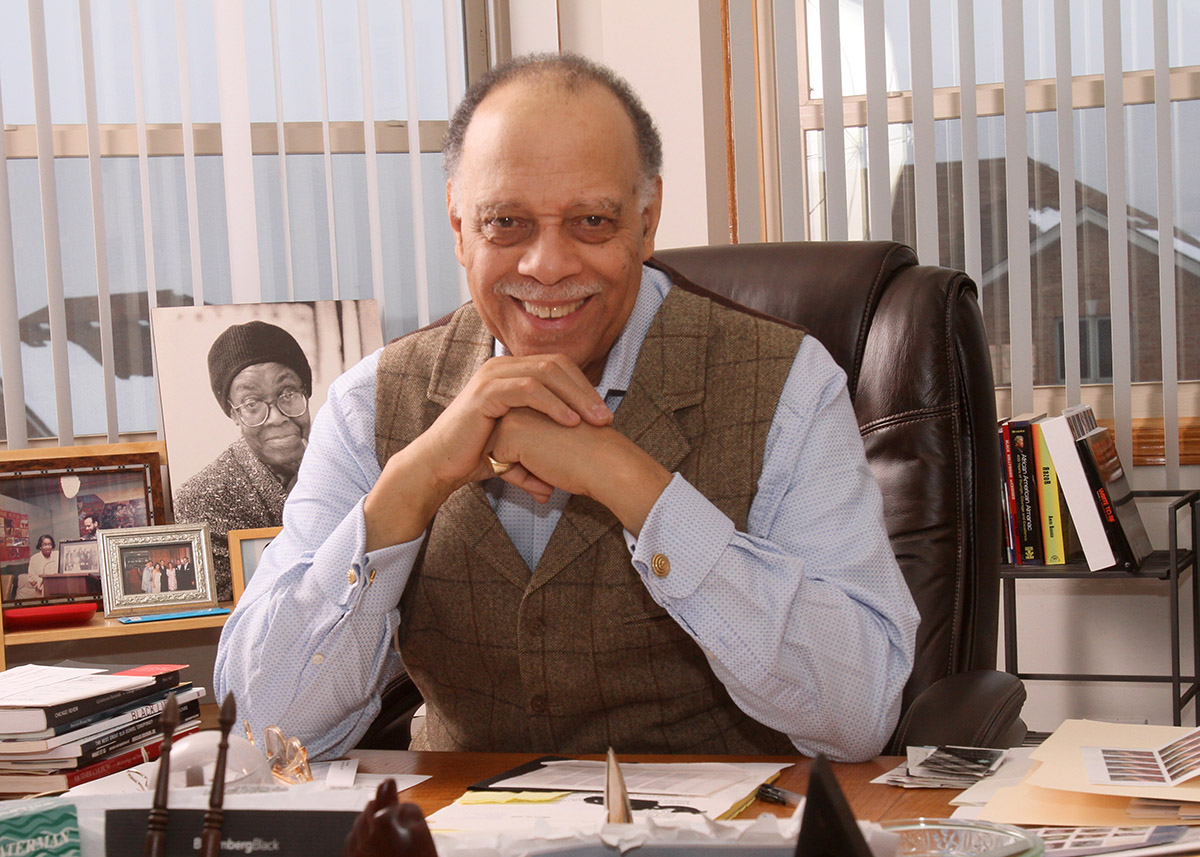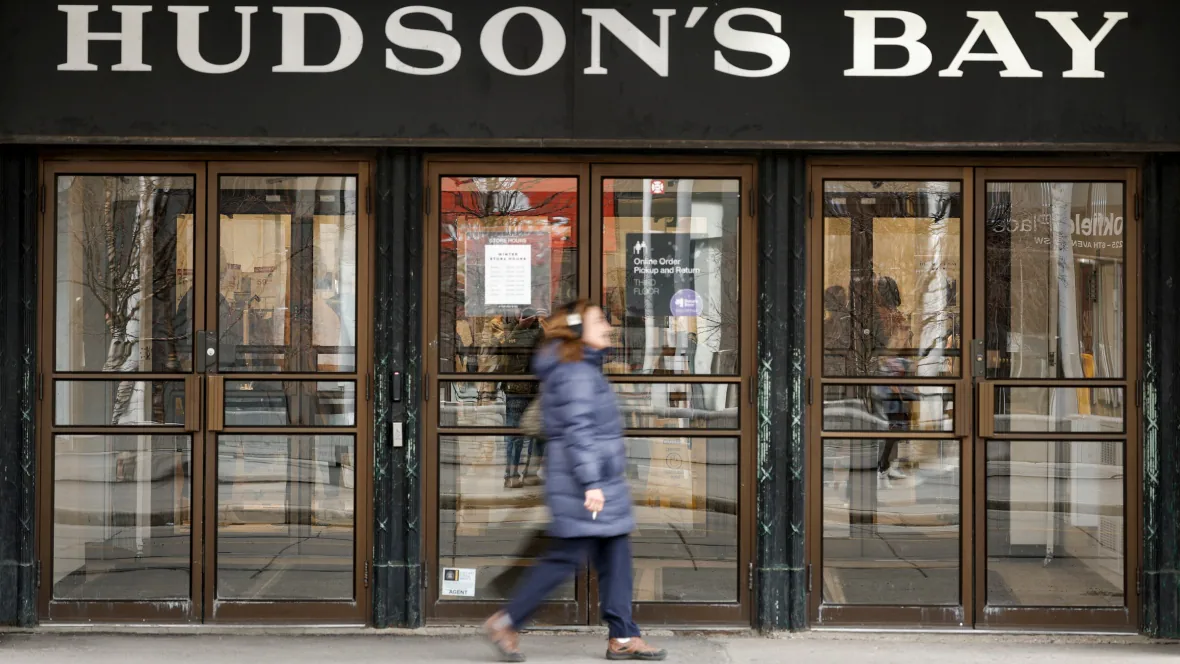By Jasmine Barnes,Sponsored By Illinois Lottery
Copyright chicagoreader

One of Haki R. Madhubuti’s first encounters with Black literature was reading Richard Wright’s Black Boy in the segregated section of his public library in Detroit.
“For the first time in my life, I was reading literature. I was reading language that was not an insult to my own personhood,” said Madhubuti, now a best-selling author and cofounder of the oldest independent Black-owned publisher in the U.S., Third World Press. “At 14, I read Black Boy in less than 24 hours. That’s how hungry I was for anything that would give me some nurturing.”
A little over a decade later, Madhubuti would attend a workshop Gwendolyn Brooks was leading at a local church and present her with a collection of his own poetry. He recalls that she “put [the book] to her heart” and the following day they met for tea, which quickly “turned into a familyhood.” As the “cultural son” of both Brooks and beloved Chicago artist and arts organizer Margaret Burroughs, Madhubuti learned the importance of building Black institutions and devoted his life to advancing Black creativity.
For Madhubuti, literature in particular was medicine to cure the self-hatred he felt as a result of the racism and poverty that shrouded his upbringing. His introduction to the power of Black storytelling and literature would eventually lead him to start Third World Press with the late poets and writers Dr. Johari Amini-Hudson and Carolyn Rodgers in 1967.
The press’s cofounders took note of the Detroit-based Black-owned Broadside Press, which was founded a few years earlier, and sought to develop a space in Chicago that could similarly nurture Black political thought. The press has since published hundreds of books of fiction, nonfiction, poetry, and cross-genre work that challenge dominant narratives and uplift marginalized voices. Renowned authors chose the press to publish their work, including Brooks, Amiri Baraka, and Sonia Sanchez.
What started with $400 and a used mimeograph machine in an Englewood apartment would become the spacious, half-block facility at the south end of Grand Crossing Park, where it stands today as the Third World Press Foundation (TWPF).As one of the last remaining institutions from the Black Arts Movement, its existence is not only emblematic of resilience in the face of attacks on Black cultural institutions, but also serves as a space “where literature and learning dismantle barriers.” Celebrating their 58th anniversary this month, the foundation seeks to evolve to meet the needs of the current moment and inspire a new generation to build upon the radical roots of its founding.
A few miles south of the TWPF offices, the Woodson Regional Library houses the Vivian G. Harsh Research Collection—a significant archive of African American history and literature. A new exhibition at the library, “Praise and Protest: Voices From the Chicago Black Renaissance,” spotlights the Harsh collection as a treasure trove of historic images, objects, and texts from the Chicago Black Renaissance (1930-50) and the Black Arts Movement (1965-75). The exhibition grew out of the Chicago Public Library’s new Magnitude and Bond initiative, which focuses on building relationships across Chicago’s Black art collections.
“Praise and Protest” explores how the Chicago Black Renaissance was an incubator for local artists, scholars, and activists who reshaped U.S. culture and laid the foundation for an empowered Black cultural identity. The archive’s namesake, Vivian G. Harsh, was Chicago’s first Black librarian and used the George Cleveland Hall Branch in Bronzeville as a space to bring together Black literary voices from across the country. In 1933, her semimonthly Book Review and Lecture Forum attracted literary giants like Langston Hughes and Zora Neale Hurston.
Chicago’s south side in particular was what the exhibition calls a hub of “Black creativity, intellect, and political imagination.” The collection shows how the Black Arts Movement was shaped by artists and institution-builders who furthered the work of their predecessors. It also highlights Third World Press as a critical space for building Black literary power; two of Madhubuti’s own bestsellers, YellowBlack (2006) and Don’t Cry, Scream (originally published by Broadside Press in 1969), were proudly on display.
In 2015, the organization, which was previously a for-profit business, adopted a nonprofit status and structure. In 2023, the press announced that it would be developing a transition plan and team to assume the day-to-day running of TWPF, including creating a new leadership structure, recruiting an executive leadership team, and developing an engaged board of directors.
Dr. Mursalata Muhammad, a professor of English at Grand Rapids Community College, has helped spearhead some structural changes that will set the press up for longevity. As a passionate champion for Black literature, she volunteers her time as the special projects manager for TWPF.
Over the next two years, Muhammad sees TWPF’s main goals as developing a core staff and building the income it needs to flourish as a nonprofit. She hopes the organization can increase its financial sustainability and community engagement by activating new initiatives.
Muhammad shared plans to launch a capital campaign, develop a donor membership model, increase guided tours of TWPF’s offices, and start a membership program where individuals pay a regular fee to engage in book discussions and author talks. Other longstanding programs like the Prison Literacy Program and their book gifting program already donate books to schools, libraries, youth organizations, and incarcerated individuals as an extension of the organization’s mission. Muhammad hopes to see these programs strengthened, expanding their reach.
“The generation we have to get don’t already know the gold in the history of Third World Press,” Muhammad said. “We have to build the momentum that it had in its heyday, with stars and politicians and everyone knowing about it.”
While TWPF’s present efforts are less familiar to younger generations, there are many exceptions. Desmond Owusu, an alumnus of Betty Shabazz International, a charter school cofounded by Madhubuti, supports TWPF with its social media.
“To be a part of the Third World Press team—it’s very full circle for me,” Owusu said. “It’s one of those gems in the city that [is] almost like a best-kept secret.” He sees the press not only as a special historic entity, but as a space worth investing in and shepherding into the future.
Muhammad hopes to activate more young people by publishing the work of undiscovered authors and stewarding a new wave of writers. She also believes it’s possible to leverage the skills and curiosities of youth by working with local universities to develop internships for students and creating research opportunities for scholars interested in preserving the press’s history.
“If I could do anything, all of the material they have here would be digitized [and] archived,” Muhammad said. TWPF’s offices are home not just to books, but art and archival materials from famed artists like Annie Lee and iconic Black institutions like the Johnson Publishing Company. She sees the technological savvy and curiosity of younger generations as a way to both preserve the past and make it relevant for future generations.
To establish what the press looks like in the future will require what Muhammad calls “international community building.” Her words echo the kind of Black familyhood Madhubuti referred to in his relationship to Brooks and others during the Black Arts Movement.
At the opening celebration for the “Praise and Protest” exhibition, people of all ages listened intently as Madhubuti shared reflections on his life with Englewood native and multifaceted artist Tonika Lewis Johnson. She expressed her nervousness interviewing “a legend, an icon, and someone whose shoulders [she] stand[s] on.” He quickly reassured her, calling her his daughter, his family.
“You could see that it was intergenerational,” said Owusu, in reference to the event’s audience. “Seeing the vastness in the crowd, I think, speaks to the legacy and how long the press will continue to thrive.”
When reflecting on what’s inspired his devotion and commitment to the press, Madhubuti addressed the crowd directly: “If there’s one undeniable fact, I love Black people.” It’s this love that remains the cornerstone of the Third World Press Foundation, upon which a vibrant future might be built.
For information on upcoming programs and initiatives, follow @thirdworldpressfoundation on Instagram or Facebook. To volunteer, email Dr. Muhammad at twpfprojects@thirdworldpressfoundation.org.
The Vivian G. Harsh Research Collection is viewable by appointment only. Visit chipublib.org/vivian-g-harsh-research-collection for hours and details.



